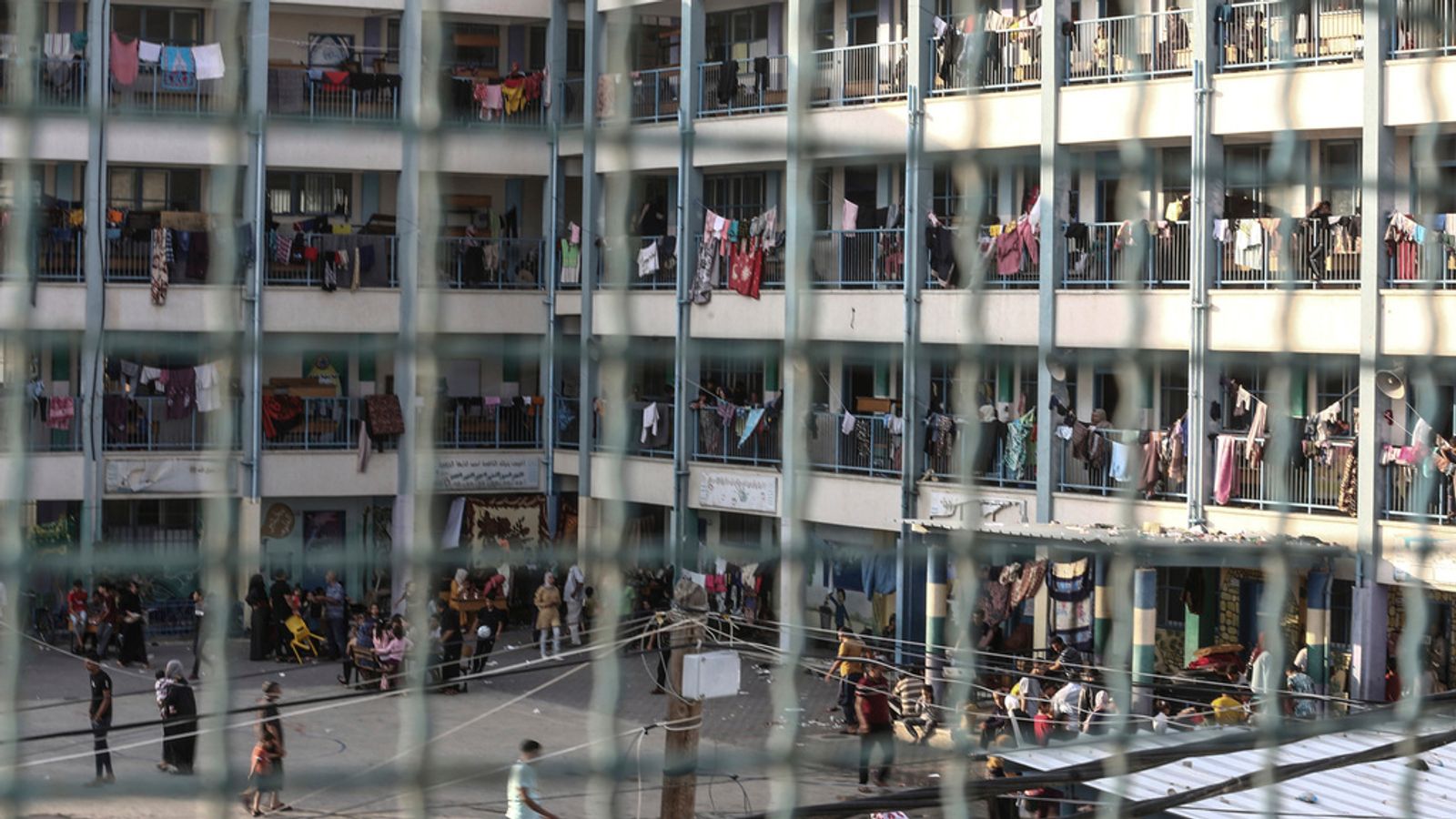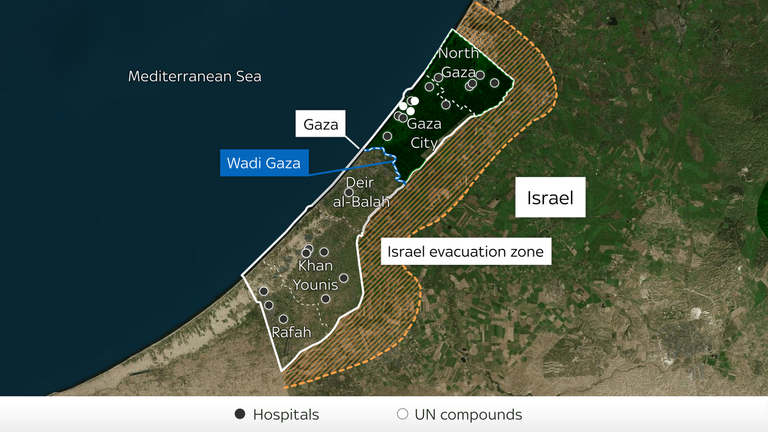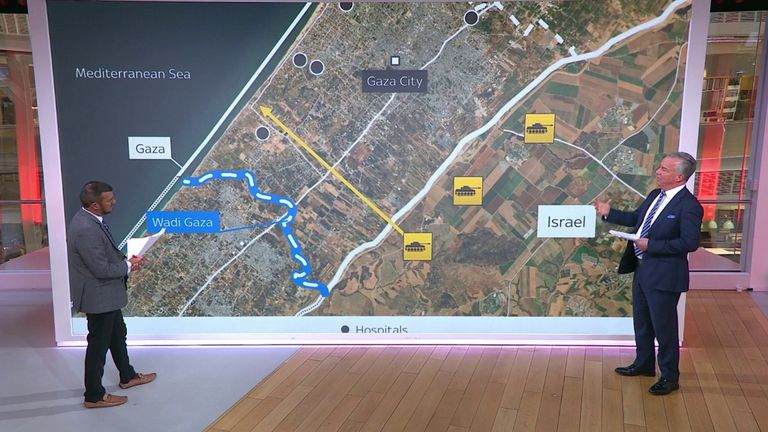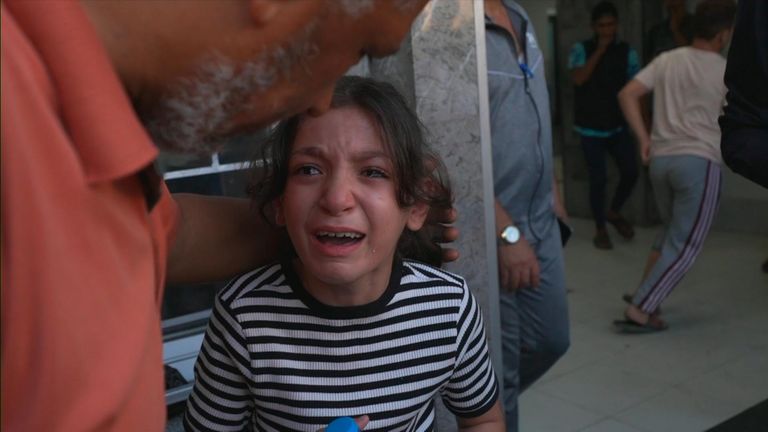War has political consequences.
When the extreme violence finally ends, there should be a search for a settlement to allow the survivors to live in peace.
Thousands have been killed on both sides already in the terror attack on Israel, and Israel’s counterattacks on Gaza.
Hundreds had been dying before that year-on-year in the comparatively low-level exchanges between the two sides.
Right now the world is holding its breath waiting to see how ferocious the response by the Israel Defence Forces are going to be. Can the conflict be contained? Or will other fronts be opened up by Hezbollah, the world’s largest non-state militia, or by neighbouring nations?
Then what? After mass bloodshed there will have to be some kind of diplomacy to calm what is often described as “the most volatile area in the world”. Both Israelis and Palestinians will face the same issue as before – how can they co-exist?
Both Israel and the Palestinian Authority signed up to the idea of Palestinian self-determination and an eventual two-state solution in the 1993 Oslo Accords. But constructive co-existence has not been on the minds of either Hamas or the Israeli government for years.
Hamas, the Islamic Resistance Movement, which controls Gaza and whose armed wing carried out the terror attacks last weekend, does not recognise Israel’s right to exist.
Historically it has sought to establish an Islamic-Palestinian State “from the river [Jordan] to the sea [Mediterranean]”.
Its current preoccupation is to end “the occupation” – usually taken to mean occupation of territory beyond its UN-designated borders which Israel has occupied since it was attacked in 1967.
Hamas’s recent horrific terrorist violence was perpetrated inside the Israeli territory, held since 1948 with the agreement of the United Nations in the wake of the Holocaust and the Second World War.
Under the leadership of Benjamin Netanyahu Israel has moved to a de facto One Nation solution of its own, also from the river to the sea, in which only Jews have full rights and non-Jews face legalised oppression and encroachment on their occupied property.
Israeli settlements – considered illegal by the international community – have expanded into the occupied West Bank and East Jerusalem.
Gaza’s borders, land sea and air have been sealed. Netanyahu has stated “Israel is not a state of all its citizens” but “of the Jewish people – and only it”.
To stay in office, and to hobble attempts to prosecute him for corruption, Netanyahu has formed a coalition with right-wing nationalist and religious parties. His national security minister Itmar Ben-Gvir has declared that Gaza should be “ours” that “the Palestinians can go to… Saudi Arabia or other places, like Iraq or Iran”.
Read more:
A century of war, heartbreak and hope for peace
Thousands in London show support for Palestine
UK could be complicit in Gaza war crimes, Tory MP warns
The West supports Israel’s right to defence – but struggles to go further
Critics dismiss the Palestinian Authority presided over by 87-year-old Mahmoud Abbas as Israel’s “security contractor” on the West Bank.
With its two million population, the 26-mile-long Gaza Strip is often called “the largest open-air prison in the world.”
Yet, for all the hatred and armed hostility, one side will never manage to wipe the other out. Western nations including the UK and the US have pledged full support for Israel, and its right to respond to the Hamas attacks.
All of them have a reflexive abhorrence of terrorism, having experienced it against their own people. But there is no doubt that they would struggle to condone a disproportionate collateral killing of civilians as they seek “to eradicate” Hamas.
France has banned pro-Palestinian demonstrations and the UK government has provided extra funds for the protection of Jewish schools and institutions.
In the Middle East, Arab populations would demand that their leaders should intervene if the Palestinians came under existential threat. The presence of an estimated 150 Israeli hostages in Gaza further complicates military options.
Those describing last week as “Israel’s 9/11” should note that the most severe responses failed. The invasions of Afghanistan and Iraq prompted by the attacks on America did not eradicate either the Taliban or Islamist terrorism.
International onlookers continue to cling to a “two-state solution” as the only answer to the millennia-old dispute between Hebrews and Philistines.
This week organisations as varied as the Arab League, the EU-Gulf Joint Co-operation Council, and the British prime minister and leader of the opposition, have all paid it lip service, although it bears little relation to contemporary developments in the disputed territory.
It is no coincidence that this month’s attack on Israel coincided with the 50th anniversary of the Yom Kippur War, but it highlighted a crucial difference.
Hamas will be hoping for support from the Arab world – but there’s widespread reluctance
1973 was an attack on Israel by a coalition of nation states headed by Egypt and Syria. Hamas is a non-state actor, which disputes political control of its cause with the Palestinian Authority (PA) and Fatah. PA leader Abbas condemned the killing of civilians “on both sides” and the West Bank has yet to erupt in full support of the attack.
Hamas may hope to pull some Arab countries into conflict on its side, but they have so far been markedly reluctant to join in.
With the Abraham Accords agreed during the Trump administration, Bahrain, Morocco, Sudan and the United Arab Emirates, joined Egypt in normalising relations with Israel.
Click to subscribe to the Sky News Daily wherever you get your podcasts
The Kingdom of Saudi Arabia, the region’s dominant Islamic power, had been exploring a similar move. Crown Prince Mohammed Bin Salman Al Saud appears more attached to modernising the region on his terms than to the Palestinians’ historic cause.
The non-Arab Islamic Republic of Iran has the closest ties to both Hamas and Hezbollah. But Iran has denied instigating the attack on Israel.
Brokered by China, Shia Iran recently re-established formal relations with its Sunni rival Saudi Arabia. In the first week after the attack even Iran-sponsored Hezbollah, based in Lebanon, went no further than gestures to signify its support.
Politically and economically Lebanon is a failed state. Neighbouring Syria is locked into its own civil war. The regimes in all these countries now fear the eruption of Islamist terrorism. Like Israel, Egypt has closed its border with Gaza because of Hamas’s close ties to the Muslim Brotherhood.
The Saudi leader has had a difficult relationship with President Biden. There has been some suggestion that he wanted to hold back the diplomatic coup of rapprochement with Israel for the next president.
Those calculations are out of date now. Donald Trump, should he be re-elected, also openly egged on Netanyahu’s greater Israel project.
The attack has united Israel at a time of war after a period when society has been bitterly divided over Netanyahu’s extremist government. It is not clear, however, that his political position has been reinforced.
The US pollster Frank Luntz predicts that the security failure to prevent the attack will ultimately cost him his job.
For now, he has been forced to form an emergency cabinet including opposition leaders such as Benny Gantz. When the war is over Israel may be able to rethink where it had been heading.
If not a two-state solution, some experts suggest that an inclusive, democratic, single state could be an option.
For all the present horrors there will soon be an opportunity for Israel, the regional Arab powers, the US and European nations properly to address the Palestinian issue which many hoped was fading away due to neglect.
The other option of escalating violence and war is too awful to contemplate. All nations would share the blame for atrocious political failure.
This story originally appeared on Skynews




